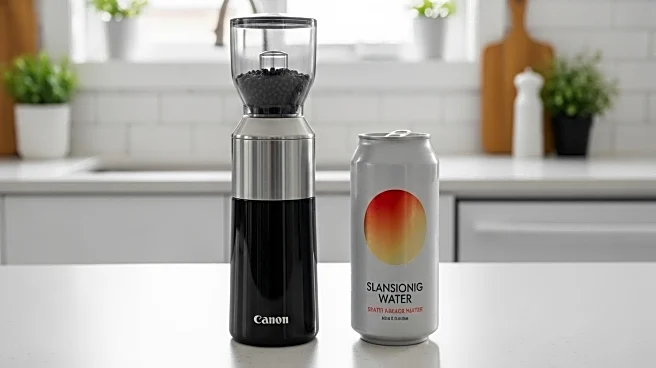What's Happening?
Death Wish Coffee has filed a lawsuit against Liquid Death, alleging trademark infringement and unfair competition. The lawsuit, lodged in a California federal court, claims that Liquid Death is planning to launch coffee products under a name that could confuse consumers due to its similarity to Death Wish's brand. Death Wish argues that Liquid Death's trademark filings and promotional activities indicate an impending launch of coffee products in January 2026. The lawsuit seeks to block Liquid Death from using the 'DEATH' name on coffee, asserting that it infringes on Death Wish's established rights. Liquid Death, known for its punk rock mineral water, has denied plans to launch coffee, stating on social media that it has no real plans to enter the coffee market.
Why It's Important?
This legal battle highlights the complexities of trademark law and the potential for consumer confusion when brands expand into new product categories. For Death Wish Coffee, the lawsuit is crucial to protect its brand identity and market position. If Liquid Death proceeds with its coffee launch, it could dilute Death Wish's brand and lead to reverse confusion, where consumers mistakenly associate Death Wish products with Liquid Death. The case underscores the importance of trademark strategy and the risks associated with brand expansion, particularly when entering markets dominated by established players. Retailers and legal teams should note the significance of trademark applications as indicators of business intentions and the potential for legal disputes.
What's Next?
The court's decision on this case could set a precedent for how trademark disputes are handled when brands expand into new categories. If Death Wish succeeds, it may deter other companies from using similar names in overlapping markets. Liquid Death's response and any subsequent legal actions will be closely watched by industry stakeholders. The outcome could influence how companies approach brand expansion and trademark filings, emphasizing the need for clear differentiation and strategic planning. Both companies may need to reassess their marketing strategies and product launch plans based on the court's ruling.
Beyond the Headlines
The lawsuit reflects broader trends in the retail industry, where companies increasingly leverage established trademarks to enter new markets. This strategy can lead to legal challenges, especially when brand names are similar. The case also highlights the role of social media in shaping public perception and influencing legal disputes. Liquid Death's social media response suggests a strategic use of public platforms to counter legal claims and engage consumers. The cultural impact of brand identity and consumer loyalty is evident, as companies navigate the balance between expansion and maintaining brand integrity.











